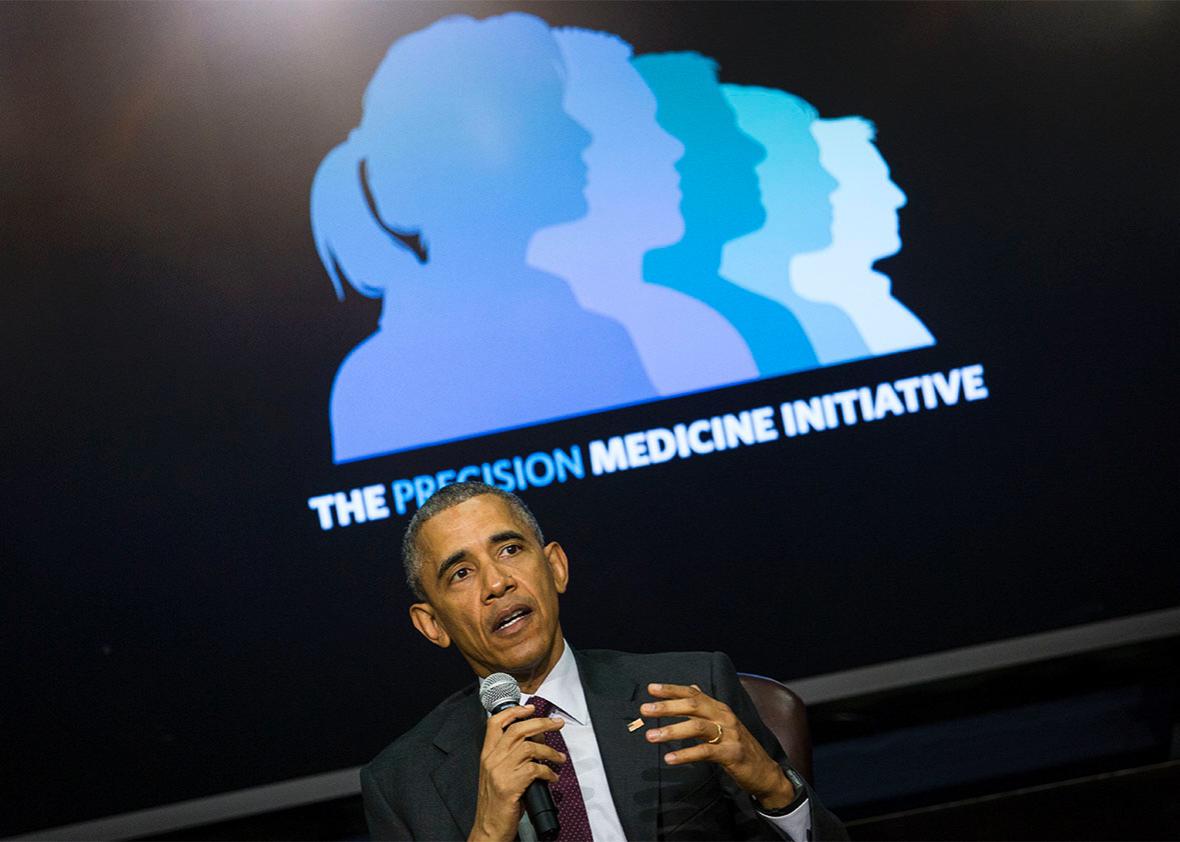On Thursday the White House held a summit to discuss progress on its Precision Medicine Initiative, first announced last year. The program has consistently emphasized that privacy and security are among its priorities when it comes to research data, but on Thursday President Barack Obama waded deeper into a debate about rights and ownership when subjects contribute their genetic information to studies.
A major goal of the PMI is to create a diverse database of health and genetic data from 1 million Americans to give researchers an open resource they can use by itself or in conjunction with other work for big data analysis. But amid hopeful suggestions about how this data could improve medicine in the future, Obama pointed to an inherent tension in collecting the data.
“It requires, first of all, us understanding who owns the data,” Obama said. “And I would like to think that if somebody does a test on me or my genes, that that’s mine. But that’s not always how we define these issues, right? So there’s some legal issues involved.”
The National Institutes of Health, a major participant in the Precision Medicine Initiative, claims researchers and volunteers who will give their genetic information to the database will be “partners” in the project. The White House says that one guiding principle of the PMI is to “engage participants as partners in research, including returning results to them in dynamic, user-centered ways.”
For those who believe that research subjects should have a role in what their genetic information goes on to do, Obama’s comments are heartening.
Sharon F. Terry, CEO of the Genetic Alliance, told the New York Times, “I had not heard this before from the president or anyone high-up at the White House. … The Precision Medicine Initiative has been trying to shift the conversation toward the idea that participants should be partners, but this is a really, really hard issue.”
As the Genetic Literacy Project pointed out in 2014, it may seem indisputable that individuals own their own DNA, tissue, etc. And the Supreme Court said in 2013 that genes cannot be patented. Beyond that, though, most research institutions do consider genetic findings to be their intellectual property, even though experiments are usually based on data from real people. And cases like that of Henrietta Lacks—whose cervical cancer cells were collected in 1951 and have lived on as research cell lines ever since—show how complicated and enduring these ownership disputes can be. For research at the scale of the Precision Medicine Initiative, transparency about this debate is crucial.
